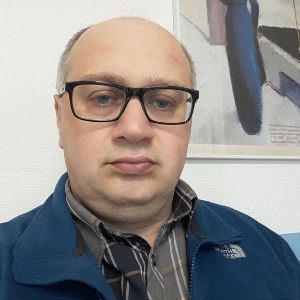People

Dimitris Drikakis
Professor Dimitris Drikakis is the Vice President for Global Partnerships and Executive Director, Research and Innovation at the University of Nicosia, Cyprus, and the President of the Defence and Security Research Institute. Prior to that, he held academic and executive posts as Professor, Executive Dean, and Head of Department at various UK universities over a period of 28 years, including Strathclyde University – Executive Dean (Engineering) (2015-2018), Cranfield University – Head of Aerospace (2005-2015). He has also held senior academic/research posts in Germany (Univ. of Erlangen-Nuremberg) and France (Univ. of Marseille). He has obtained his Meng Mechanical Engineering (1987) and PhD from the National Technical University of Athens, Greece (1991) with MBB Flight Physics Division in Ottobrunn being the industrial supervisor.
His research is multidisciplinary, and his current interests include topics of engineering science and emerging technologies:
- Aerodynamics and gas dynamics
- Acoustics, including noise propagation and acoustic loading on structures
- Advanced materials; carbon nanotubes in particular.
- High-resolution simulation methods for flows, heat transfer and materials
- Computational intelligence
- Augmented and Virtual Reality
He has received twice the William Penney Fellowship Award by the UK’s Atomic Weapons Establishment in recognition of his contributions to modelling and simulation for advanced CFD simulations of multicomponent turbulent flows; and the Innovator of the Year Award (2014) by the UK’s Innovation Institute for a carbon nanotubes nanotechnology device.
He has carried out research and development projects for, oi in collaboration with, several aerospace and defence companies, including BAE Systems, MBDA, Lockheed Martin, Eaton Aerospace, GKN Augusta-Westland, Eurocopter, US Air Force, UK MoD and DSTL, DLR, amongst others
He is a Fellow of the Royal Aeronautical Society and Senior Life Member of the American Institute of Aeronautics & Astronautics, and a Life Member of the American Physiccal Society.
He has co-authored two books and has published over 417 papers in journals and conference proceedings. He has graduated 45 PhD students who now hold positions in academia and industries around the world.
He has also been an Associate Editor of Computers and Fluids; Journal of Fluids Engineering; The Aeronautical Journal of the Royal Aeronautical Society; Journal of Computational and Theoretical Nanoscience; Physics of Fluids; as well as serves on editorial boards in several journals in the fields of Engineering (Aerospace, Biomedical, Energy, Defence), Computational Science, Applied Physics, and Nanotechnology.
He has also served on the Fluid Dynamics Technical Committee of the American Institute of Aeronautics and Astronautics; Board of Directors of the European Aeronautics Science Network; European Research Council (Engineering – Deputy Chair); European Commission; and the UK’s Oil and Gas Technology Centre (OGTC), as a Chair of the academic panel.

Ioannis Kyriakides
Dr. Ioannis Kyriakides received his B.S. degree in Electrical Engineering in 2003 from Texas A&M University. He received his M.S. and Ph.D. degrees in 2005 and 2008 respectively from Arizona State University. He held a research associate position throughout his graduate studies, funded by the Integrated Sensing and Processing program and the Multidisciplinary University Research Initiative of the USA Department of Defence. In the final year of his Ph.D. work, he received the University Graduate Fellowship of the Arizona State University. His research interests include Bayesian target tracking, sequential Monte Carlo methods, heterogeneous data fusion. His research work includes localization of multiple RF sources, tracking surface vehicles using passive acoustic sensing, tracking multiple targets with constraints in motion, tracking multiple targets using cognitive heterogeneous sensors. He has been the coordinator of a Cyprus Research Promotion Foundation funded project on the use of Automated Sonar-Thermal Monitoring for Sea Border Security, CY-RPF, (funding: € 180 K) under the University of Nicosia Research Foundation. Dr. Kyriakides is currently an Associate Professor at the Engineering Department at the University of Nicosia. He participates in the Department of Engineering Quality Assurance Committee and the University of Nicosia Environment, Health, and Safety committee. He is a member of CapTech Information of the European Defence Agency.

George Khujadze
Dr.-Ing George Khujadze has graduated from the Iv. Javakhishvili Tbilisi State University, Faculty of Physics, Department of Theoretical Physics, Georgia, in 1993. He has obtained his PhD from Technical University of Darmstadt, Department of Mechanical Engineering, Germany, in 2006. The topic of his thesis was the numerical simulations and Lie group analyses of high Reynolds number turbulent wall-bounded flows.

Stelios Neophytou
Dr Stelios Neophytou is an Associate Professor at the Department of Engineering, University of Nicosia, Cyprus. He holds an Engineering Diploma from the Computer Engineering and Informatics Department of University of Patras, Patras, Greece (2003), and a PhD degree from the Department of Electrical and Computer Engineering, University of Cyprus, Nicosia, Cyprus (2009).
His research interests fall under Electronic Design Automation focusing on algorithm development for integrated circuits’ design verification and post-manufacturing testing. Specifically, his work involves methodologies for quality enhancement of the Automatic Test Pattern Generation (ATPG) process related to detection of non-modelled defects, test size compaction and scaling in multiprocessing environments. He has also work related to test generation techniques for Built-In Self-Test architectures as well as graph-theoretic problems considering Binary Decision Diagrams. He is a member of the Cyprus Technical Chamber and a Senior Member of IEEE.

Ioanna Dionysiou
Dr Ioanna Dionysiou is currently an Associate Professor of Computer Science at the University of Nicosia. Dionysiou received her PhD from Washington State University (2006) and during her graduate studies she held teaching and research assistant appointments. Her PhD dissertation work investigated trust requirements and challenges for large-scale infrastructures, with an exemplary infrastructure being the US Electric Power Grid. Dionysiou’s PhD research was supported by three USA national organizations: NIST (National Institute of Standards and Technology), NSF (National Science Foundation), and DOE (Department of Energy).
Dionysiou’s research focuses on trust, security and data protection models in collaborative environments. She is the co-director of the Informatics Security Laboratory (ISL) at University of Nicosia, which aims mainly on devising new techniques to detect cyberattacks by analyzing attack patterns and visualizing attack attempts in an intuitive manner. Other lab research activities include, among others, applied security standards (ISO 27001), multidisciplinary security practices, data protection, and cyber warfare. She has supervised MSc students as well as several undergraduate students on security topics.
Dionysiou co-authored numerous publications on trust management, security, and data protection. She served in various conference committees as an organizing member, track/session chair, and program committee member. She is member of various boards, including the Cyprus ECSC (European Cyber Security Challenge) Advisory Board. She has participated in locally-funded and European-funded research projects.
Dionysiou is teaching numerous undergraduate and graduate level security courses at University of Nicosia, including Computer security, Cryptography and Network Security, and Cyber Warfare.

Dmitry Apraksin
Dr. Dmitry Apraksin, was born in 1963 in Russia. In 1985 has graduated from the Moscow Institute of Management (Moscow State University of Management, at present) and completed his PhD studies in 1989 in MIS. From 1986 until 1990 was working as an assistant professor at the Moscow State University of Management, during the same period of time he was a consultant for a number of intelligent text processing projects at the Ministry of Education of Russian Federation, Ministry of Interior of Russian Federation and Supreme Court of Russian Federation. For his performance, Dr.Dmitry Apraksin was included twice in the List of Gratitude to the service to the State from the Ministry of Education.
During the period from 1990 to 1993 he was a Technical Director of Soviet American Joint Venture company SAMAN specialized in producing Computer Based Training (CBT) courseware.
Since 1994 Dr. Apraksin started working at Intercollege which later became University of Nicosia. At the Intercollege and University Dr. Apraksin has taken positions of Senior Computer Supervisor, Head of Computer Center and Head of IT (at present). In addition to the above administrative duties, Dr. Apraksin is a Lecturer of Computer Science Department. Among his recently touched courses are Programming the Internet, Advanced Database, Principles of Information Security, Business Intelligence, Digital Currency Programming and Mobile Computing.
His scientific interests include Database Development and Design (Relational, Object-Relational, NoSQL, etc.), Big Data Processing, Intelligent Text Processing and Cloud Computing.

Constantinos Adamides
Dr. Constantinos Adamides is an Associate Professor of International Relations at the University of Nicosia, where he also serves as the Director of the Diplomatic Academy. Further to the academic activities at the University, he also continues to develop a close relationship between the Diplomatic Academy and the government sector, especially the Ministry of Foreign Affairs and Defense, as well as with foreign diplomatic Missions in Cyprus, and other international organizations that focus on diplomatic and security-related issues, such as the George C. Marshall Center for Security Studies in Germany and the Center for Study and Practice of Conflict Resolution at the University of Malta. Dr. Adamides was also appointed by President Nicos Anastasiades as a Member of the first Geostrategic Council of the Republic of Cyprus (2014-2018), contributing to the development of reports and analyses for the President and/or other government officials on issues pertinent to geopolitical developments. Furthermore, he was apointed as a member of the inter-ministerial task force responsible for drafting the first Cypriot National Security Strategy.
Constantinos holds a PhD in Political Science and International Studies, an MA in Diplomacy and International Relations, an MBA in Finance, and a BSc in Finance and Political Science. His research focuses mostly on protracted conflicts, security, future of warfare, cyber security, terrorism, EU foreign and security policy, and securitization theory.
For a detailed CV and more information visit: http://unic.academia.edu/ConstantinosAdamides.

Marinos Papaioakeim
Marinos Papaioakeim is a researcher in the fields of defence, security and diplomacy. He holds a BA in history from the University of Cyprus and MA in Diplomacy and Foreign Policy from Lancaster University in the United Kingdom. Currently, he is a PhD candidate in at the Department of Social and Political Sciences of the University of Cyprus and his PhD thesis focus in Defence/Military Diplomacy. His main research interests include Defence/Military Diplomacy – Policy, Security, Military Forces, Hybrid threats/warfare and Protracted Conflicts.

Professor Vassilis Charissis
Professor Vassilis Charissis is a Professor of Human-Computer Interaction and Virtual/Augmented Reality (VR/AR) in Glasgow Caledonian University, UK, and Visiting Professor with the University of Nicosia and Fellow of DSRI. Prof Charissis is the director and founder of the Virtual Reality and Simulation Laboratory (VRS Lab) and Virtual Reality Driving Simulation Laboratory (VRDS Lab). He holds a PhD in Computing in the area of Human Machine Interfaces and Augmented Reality Head-Up Display systems, and an MPhil in Computing – Advanced 2D/3D Motion Graphics and Virtual Prototyping both from the University of Glasgow, UK. Throughout his career, he had developed prototype systems for different industries, including the defence sector (QinetiQ, Thales, BAE and Fisher Defence Submarines). His academic research and contribution to major projects acquired funding of approximately £12,5M and he has produced more than 100 international publications in the fields of Human-Computer Interaction, Virtual Reality, Augmented Reality, Simulations, User Experience, Intelligent Vehicles and Artificial Intelligence. He is the recipient of two international awards for prototype design and engineering in the automotive industry competitions for FIAT and Opel respectively and is the holder of two patents in advanced biomimetic automotive engineering for the design and development of a Dynamically Configurable Vehicle (DCV).

Mr Panayiotis Hadjipavlis
Panayiotis Hadjipavlis is an aviation and defence professional with over 25 years of experience in strategic planning, analysis and geopolitics. He holds an MBA, an MSc in Aviation Safety Management, a Master in Research in Geopolitics and Strategy and a Professional Master in Superior Military Studies whilst he is currently a Doctorate Candidate in Airspace Geopolitics at the Newcastle University, UK. He is a Research Fellow at the GEOLAB Institute of the Ionian University, in Corfu, Greece and also an Associate Researcher at the University of Nicosia in the Department of International Relations. He has been an associate editor of the Eastern Mediterranean Geopolitical Review a peer-review journal specialized on geopolitics. He regularly participates in the issue of policy papers as well as in debates, conferences and meetings with prominent politicians and scholars discussing various geopolitical and security matters.
As regards his professional career Major (AF) Panayiotis Hadjipavlis is currently a strategic analyst at the European External Action Service while he has been for more than five years the Deputy of the European Defence Agency Affairs’ Office of the Cyprus Ministry of Defence, responsible for Research and Technology.
In 2008, he served as strategic analyst for the European Union Mission for Chad and CAR. He had the opportunity to work in a very demanding, complex, multinational environment where cooperation, negotiation, self-motivation and of course analytical skills were imperatives for the efficient and effective functioning of the analyst team.

Dr. Christos Riziotis
Dr. Christos RIZIOTIS, (DSRI Fellow) is a Principal Researcher / Research Associate Professor at the Theoretical and Physical Chemistry Institute of the National Hellenic Research Foundation -NHRF where he is leading the activity “Applied Photonics-Materials and Devices”. He holds a Ph.D. in Photonics from Optoelectronics Research Centre, University of Southampton, UK, an M.Sc. in Electronics and Telecommunications and a Degree in Physics both from National Kapodistrian University of Athens. His research interests cover the areas of photonic materials, integrated optics, direct laser writing, fibre sensors, optical communications, nanophotonics, plasmonics, and quantum photonics. His work has led to a number of successfully demonstrated applications in defence industry, structural health monitoring, industrial processes monitoring, chemical sensing and biomedical / healthcare devices. He has participated or developed a number of collaborations and R&D projects with industry such as Pirelli Cavi, Southampton Photonics, Stratophase, MBDA Missile Systems, Kleemann Lifts S.A., Opticon Group S.A., Bayern Chemie Propellants GmbH etc. He has authored a wide thematic range of around 100 publications in Journals and international conference proceedings, holding also three (3) patents. He is reviewer in over 50 technical Journals, committee member in a number of international conferences, editorial board member and Guest editor in several Journals in sensors, materials and instrumentation. He serves also as Management Committee Member for a number of research academic networks like COST Actions in the areas of sensing, novel materials, manufacturing, and healthcare, while served also as expert in the IEC Standardization Committee for Fibre Optic Sensors.

